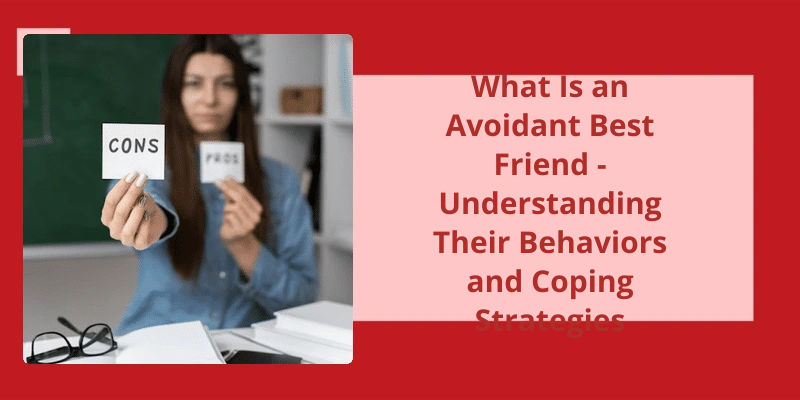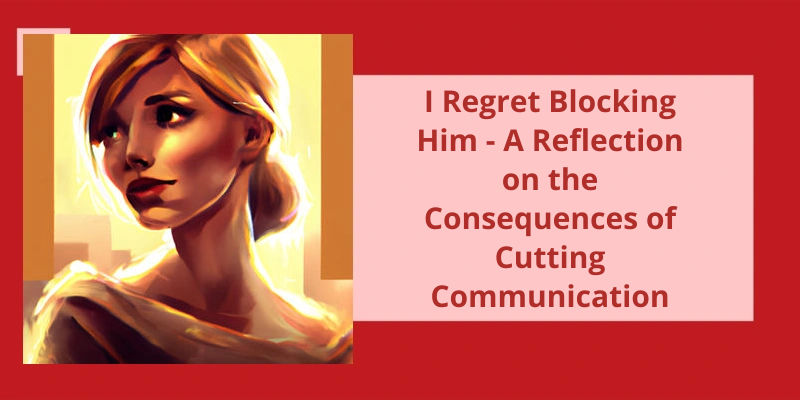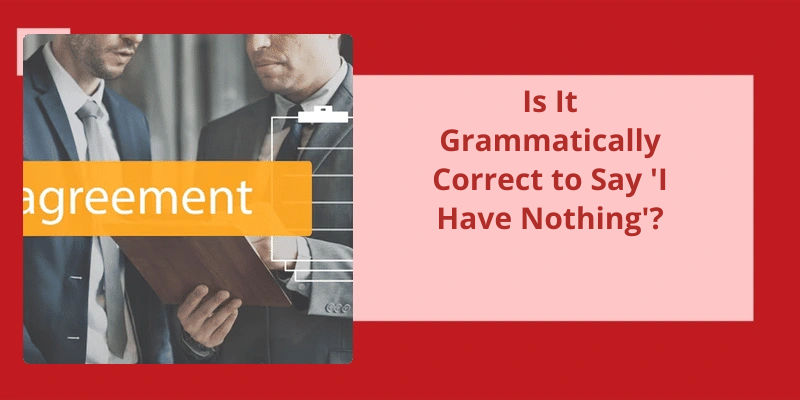Have you ever had a friend who seems to shy away from emotional intimacy and closeness? Perhaps they consistently keep their distance and prefer to keep interactions on a surface level. If you have, then you may have encountered an avoidant best friend. Avoidant individuals are known for being self-reliant and avoiding emotional attachment. They prioritize logic over emotions and tend to label those seeking emotional intimacy as clingy or needy. It can be difficult to navigate a friendship with an avoidant best friend, and understanding their tendencies can help to foster a stronger relationship.
Can Avoidants Have Close Friends?
They may have many acquaintances and be comfortable in social settings, but forming close relationships can be challenging. This is because avoidants tend to have difficulty with emotional intimacy and vulnerability. They may struggle to open up and share their feelings with others, even with friends theyve known for a long time.
It’s also important for avoidants to find friends who’re accepting and understanding of their attachment style. It can be helpful to look for friends who value independence and autonomy, as avoidants often do. Friends who’re accepting of boundaries and don’t pressure the avoidant to be more emotionally available than theyre comfortable with can also be beneficial.
In some cases, therapy can be useful for avoidants who want to work on building closer friendships. A therapist can help them identify patterns and beliefs that are holding them back from forming deeper connections and provide guidance on how to overcome those challenges. They can also help the avoidant build self-awareness and self-esteem, which can help them feel more confident and secure in their relationships.
It just takes a bit of extra effort and a willingness to step outside their comfort zone. With time and practice, they can learn to be more open and vulnerable with their friends and enjoy the benefits of deep, meaningful relationships.
What Are the Main Causes of Avoidant Attachment Style and How Do They Impact Friendships?
Avoidant attachment style can come from childhood experiences of neglect, inconsistency, or rejection from caregivers. These experiences can lead to a fear of depending on others and a preference for independence. In friendships, avoidant individuals may be emotionally distant, avoid intimacy, and find it difficult to trust others or express their needs.
The effects of attachment styles reach beyond romantic relationships and can impact other types of relationships, such as friendships. Avoidant attachment, in particular, can make it difficult for individuals to establish and maintain strong connections with others. Studies show that people with avoidant attachment are more likely to push others away out of fear of rejection, leading to the end of friendships. Understanding the influence of attachment styles on friendships can help individuals improve their relationships and build stronger connections.
Can Avoidant Attachment Affect Friendships?
Our attachment style, which develops in childhood based on our interactions with caregivers, can have a significant impact on our ability to form and maintain friendships. Those with avoidant attachment are often wary of opening up to others, fearing rejection or abandonment. This fear can cause them to distance themselves from potential friends and make it difficult to form deep connections.
They may have a tendency to prioritize their own needs and avoid close emotional connections with others, leading to one-sided or unbalanced relationships. This can lead to dissatisfaction and ultimately, the end of the friendship.
With awareness and effort, individuals with avoidant attachment can work on developing healthy and fulfilling relationships with others. This may involve practicing vulnerability and learning to communicate openly with friends.
However, there are several reasons why Avoidants may have the desire to remain friends with their romantic partner, and it’s not always as simple as just wanting to avoid the discomfort of a breakup. Let’s take a closer look at the psychology behind why Avoidants may want to stay friends and what challenges may arise as a result.
Why Do Avoidants Want to Stay Friends?
Additionally, avoidants may value the emotional support and connection that comes with a friendship, while still having the ability to maintain personal freedom and independence. This allows them to have a sense of control over how close they get to another person, which they may have difficulty with in the context of a romantic relationship.
By avoiding the commitment and vulnerability of a romantic relationship, they can continue to explore other options and maintain a sense of independence. This can be especially true if an avoidant feels uncertain about their future goals or how they see themselves in the long term.
For some avoidants, staying friends may also be a way to assuage feelings of guilt or responsibility. They may feel that they’ve let their partner or prospective partner down by not being able to commit fully to the relationship. By remaining in a friendship, they can still be there for the other person while avoiding the pressure to take things further.
While this approach may not work for everyone, it can provide a valuable way for individuals to navigate the complex emotions and expectations that come with relationships. Ultimately, the decision to stay friends or not will depend on the individual and their specific needs and goals.
The Impact of Attachment Styles on Relationships and Friendships.
Attachment styles refer to the way individuals form emotional bonds with others based on their early life experiences. The way one attaches to others can impact the quality of their relationships and friendships, leading to either healthy or unhealthy dynamics.
Source: What Do Avoidants Get Out Of Keeping Exes Around?
However, it’s essential to understand that individuals with avoidant personality disorder still desire meaningful connections with others. While they may struggle with initiating or maintaining relationships due to their fear of rejection, they still crave social interaction and companionship just like anyone else. In this article, we will explore the nuances of making friendships with someone who’s avoidant personality disorder and offer tips on how to create a supportive and understanding relationship.
Do People With Avoidant Personality Disorder Want Friends?
People with avoidant personality disorder often want friends like everyone else but their fear of rejection and criticism makes it difficult for them to approach people and form deep bonds. The fear of being rejected or disliked can be so overwhelming that it may lead them to avoid social situations altogether. They may feel a sense of discomfort, nervousness, and anxiety when they’ve to interact with others, especially if it involves public speaking, meeting new people, or attending social events.
Their lack of social skills could make them appear disinterested, aloof, or unfriendly, which can further reinforce their negative beliefs about social interactions. Because they view friendship as a double-edged sword – it can bring joy and companionship, but also disappointment and emotional pain – they may avoid pursuing close relationships altogether.
In addition, people with avoidant personality disorder can have underlying feelings of inadequacy, inferiority, and shame, which can further damage their self-esteem and prevent them from seeing themselves as worthy of close relationships. They may struggle with negative self-talk or rumination, where they focus on their perceived flaws, shortcomings, and mistakes, and blame themselves for any negative outcomes. This harsh self-criticism may lead to feelings of guilt, shame, and hopelessness, making it even harder to reach out to others.
However, that doesn’t mean that people with avoidant personality disorder can’t have strong and meaningful friendships. With the right support, treatment, and practice, they can learn to manage their anxiety, develop healthy communication skills, and build trusting relationships with others. Therapy can help them understand and challenge their negative beliefs, teach them coping strategies for social anxiety, and provide a safe and supportive environment to practice social skills.
Moreover, finding like-minded individuals who share similar interests, hobbies, or passions can make it easier for people with avoidant personality disorder to connect with others. They can also experiment with different social activities, such as group outings, classes, volunteering, or joining online communities, that align with their values and goals. Focusing on positive experiences and learning from setbacks can help them reframe their mindset and build self-confidence in social situations.
How Can Friends and Family Members Support Someone With Avoidant Personality Disorder?
Avoidant personality disorder is a condition where an individual may experience extreme shyness, feelings of inadequacy, and fear of rejection or criticism. Friends and family members can support individuals with this disorder by providing emotional support, encouraging them to seek professional help, and creating safe spaces where they can express themselves. It’s important to remember to be patient and understanding as individuals with this condition may have a hard time opening up and building relationships.
Conclusion
While their independence and logic can bring a refreshing perspective to a friendship, their discomfort with emotional intimacy can make it difficult to establish a deep connection. It's important for those in a friendship with an avoidant friend to respect their boundaries while also expressing their own needs and desires for closeness.






